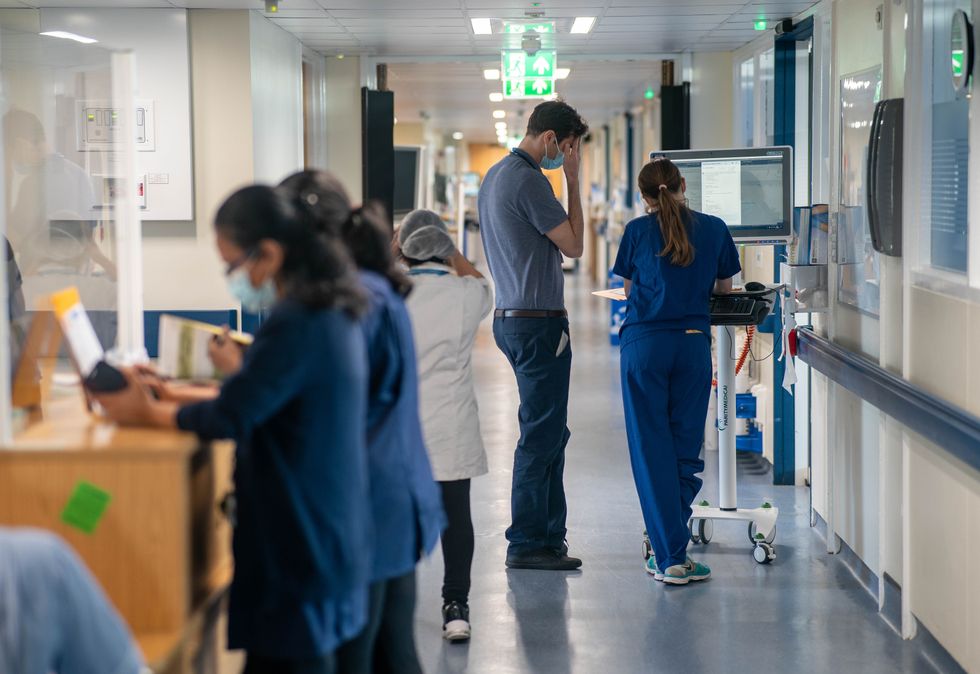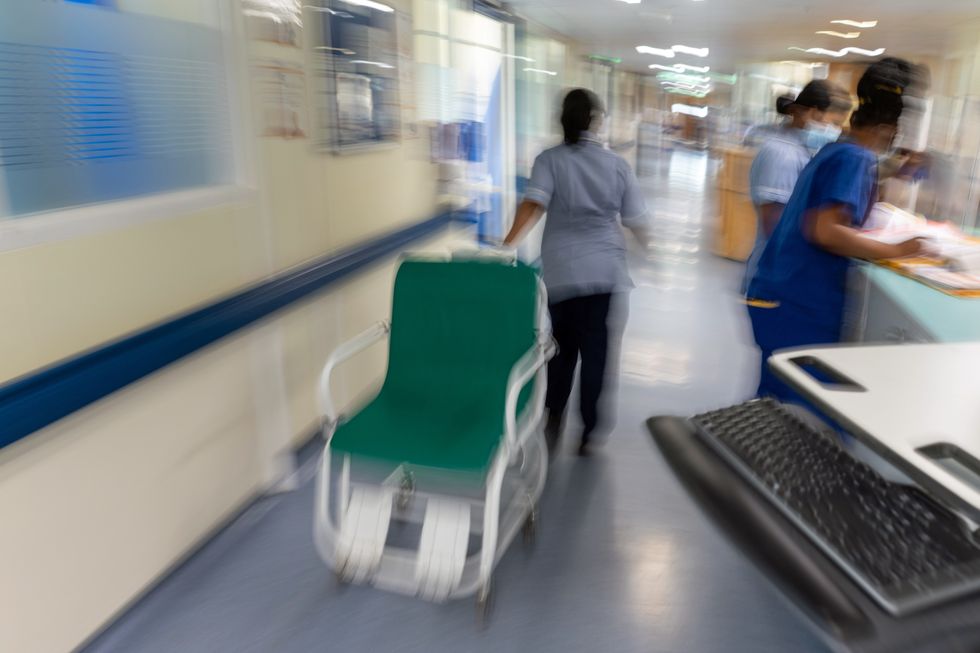The NHS in England is facing unprecedented pressure as hospitals hit critical occupancy levels at the start of December, months before the usual winter peak.
Latest data shows around 95 per cent of hospital beds are already occupied, a level typically seen only during the depths of winter.
The alarming figures come as the health service grapples with a surge in seasonal illnesses, putting extraordinary strain on an already stretched system.
Professor Sir Stephen Powis, NHS England’s medical director, issued a stark warning about the mounting pressures on hospitals.
“The NHS is busier than it has ever been before heading into winter, with flu and norovirus numbers in hospital rising sharply – and we are still only at the start of December, so we expect pressure to increase and there is a long winter ahead of us,” he said.
Concerns are growing about what health officials are calling a potential “quad-demic”, with Covid, flu, RSV, and norovirus all circulating simultaneously.
 A general view of staff on a NHS hospital wardPA
A general view of staff on a NHS hospital wardPAThe scale of the crisis is reflected in stark bed occupancy figures across multiple illnesses.
Flu patients alone occupied nearly 1,100 beds last week, four times higher than the same period last year.
Covid-19 continues to impact services, with 1,400 beds occupied by patients with the virus.
A further 750 beds were taken up by norovirus cases, while an average of 142 children per day were hospitalised with RSV.
These figures represent a significant early-season surge across multiple viral infections.
The pressure is particularly evident in ambulance services, with two-thirds of crews experiencing delays when dropping patients at A&E.
Despite the requirement to handover patients within 15 minutes of arrival, 67 per cent of ambulances faced longer waits last week.
The average handover time has stretched to over 44 minutes, significantly above the target time.
These delays represent a critical bottleneck in emergency care delivery, as crews remain unable to respond to new calls while waiting with patients.
 A general view of staff on a NHS hospital wardPA
A general view of staff on a NHS hospital wardPAThe mounting pressure has raised serious concerns among healthcare leaders about the NHS’s ability to cope with peak winter demands.
Rory Deighton, of the NHS Confederation, said: “These figures are deeply worrying as they provide yet more evidence the NHS is already under considerable strain before the pressures of winter have peaked.”
“We knew that the health service was running hot, with A&Es, ambulances and general practice having their busiest October on record,” he added.
The early surge in seasonal viruses is particularly concerning, with impacts being felt “much earlier than in previous years”.